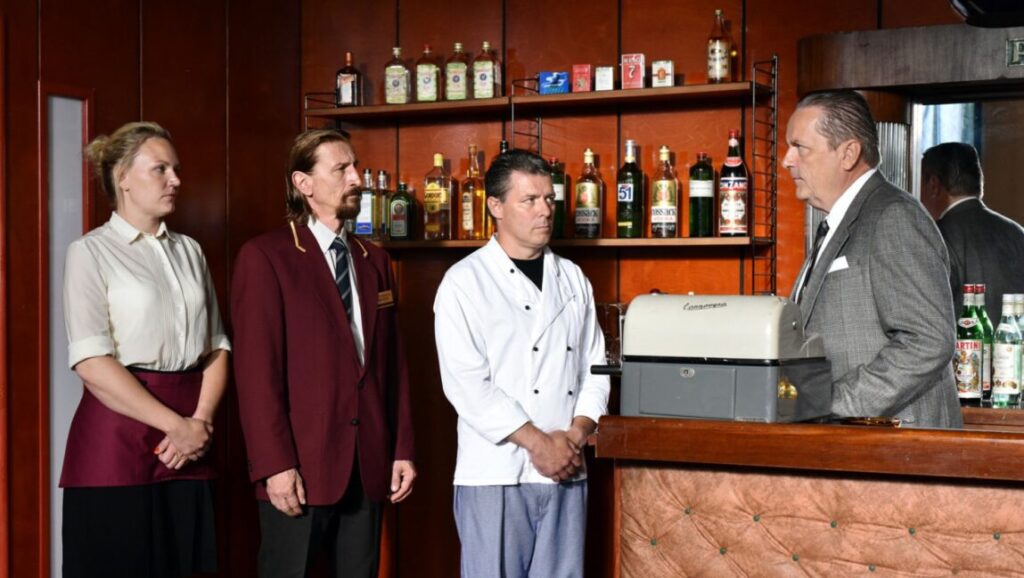The 60 year-old Aki Kaurismäki has declared that his latest, The Other Side of Hope, will be his swan song. There’s cause to treat the excitable director’s threat, which he made at the Berlin Film Festival this year, with some skepticism: He made the same claim in Berlin in 1994 (in solidarity with Krzysztof Kieślowski). If it’s true, though, the director’s fans could scarcely ask for a better bow-out than this timely, hilarious, achingly touching film, which evidences Kaurismäki still at his “late” career acme, riffing and building on chords strummed in his Finland trilogy. Agnostics might wonder if he’s just out of ideas, since The Other Side of Hope features so many signature elements: dry, flat line deliveries; a warm regard for immigrants; frequent musical interludes by random bands and troubadours; near-identically duplicated scenes (a posse of aging locals coming to the defense of an outnumbered victim feels straight out of The Man Without a Past); and familiar actors, like Kati Outinen’s shopkeeper, who’s planning a new life in Mexico City (“I want to drink sake and dance the hula hula”). The sympathetic will appreciate these recurrences as auteurist stamps.
The dual narrative here involves a Syrian refugee, Khaled (Sherwan Haji), who arrives in Helsinki stashed underneath some coal on a parked barge, and who hops the fence of an immigration service point after attempting to seek asylum legally. There’s also a shirt salesman, Wikström (Sakari Kuosmanen), who uses a mammoth poker payday to open a restaurant called the Golden Pint. The paths of these two cross when Wikström fishes Khaled out from behind The Golden Pint’s dumpster and a fistfight swiftly turns into a janitorial job offer. A cloud of sadness hovers over both, basically sweet and decent men. Khaled was separated from his sister on the Balkan route, and though he falls “in love” with Helsinki, he looks lost dumping way too much detergent into a coin-operated washing machine or sharing a beer (“or whatever it is they drink here”) and watching music with his Iraqi station-mate. (In one scene, Khaled even reveals a secret gift for the guitar.) Wikström is introduced placing his wedding ring on the table next to his chain-smoking, alcoholic wife, both quietly fed-up with each other for the time being. The film turns more baldly comedic once we enter the Golden Pint, which has a starchy, seniors’ civic center vibe; it has an out-of-place Hendrix poster on the wall, serves only sardines, meatballs, and potatoes, and comes bundled with a three-person staff, including a chef who sleeps standing up with a lit cig in his mouth. When the gang decide that sushi is trendy, they go Japanese—the broad sight gags include hasty signage and kimonos and horrifying gobs of wasabi. But tuned into the violence, fear, and danger that accompany immigration, The Other Side of Hope avoids cute cuddliness, thanks to its tone-perfect acting and Kaurismäki’s arch compassion.
Published as part of New York Film Festival 2017 | Dispatch 1.


Comments are closed.